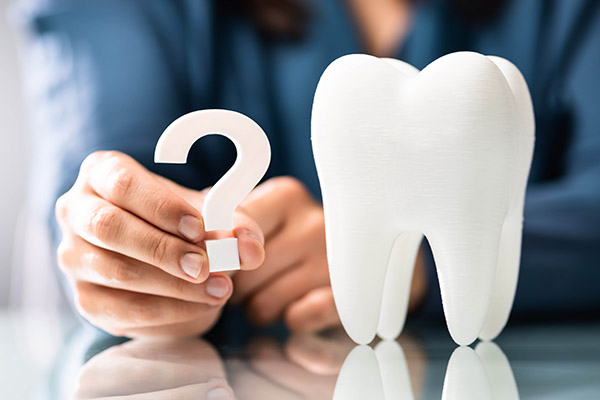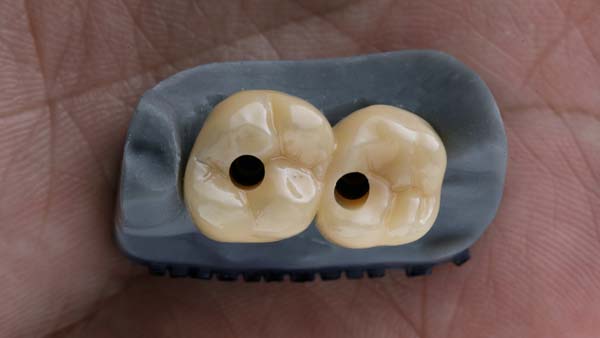Foods to Avoid With Dental Veneers

Dental veneers are thin custom-made durable shells that are bonded to a tooth’s surface to enhance the appearance of the tooth. Veneers are good options for you if you have uneven, worn down, discolored, misaligned, spaced, chipped or irregularly shaped front teeth. Veneers can help improve the appearance of your teeth and your smile. However, it is important to take good care of your veneers.
Making dental veneers last
Dental veneers generally last for many years. After between 7 and 15 years, they will have to be replaced. Even though there is not much a person can do about a veneer’s natural life span because veneers are not supposed to be a permanent fix, a patient can still get the most out of them by treating them well. A person can make sure veneers last for a long time by avoiding particular foods.
Foods to avoid
Although veneers are made of cemented dental materials, they are not indestructible. Veneers can be damaged if a person does not take good care of them. Veneers can crack and chip just like a person’s natural teeth. It is important for people to avoid things that can contribute to them breaking or chipping.
It is beneficial for a person to avoid eating hard foods like almonds, ice, hard candy, hard biscuits, hard nuts, caramel apples, popcorn and pumpkin seeds. This will prevent them from breaking and will ensure that the veneers can last longer. Cracking shells using the front veneers should also be avoided. Porcelain veneers are usually popular partly because the veneers are stain-resistant. However, even though these veneers are known to resist stains, a dentist may suggest avoiding stain-causing beverages and foods such as red wine, tea or coffee.
Recommended practices
A person who has veneers can eat most foods, but every person has a different bite. Dentists usually recommend that patients eat softer foods especially for the first few days until a person gets accustomed to the new bite position. After some weeks, people may be able to eat a wide variety of foods unless a person has particular needs. Veneers do not need any special care other than flossing, brushing and visits to the dentist.
People can benefit from brushing their teeth at least twice every day and flossing each day. Rinsing with an antiseptic mouthwash is also recommended. A person should also continue visiting a dentist regularly. Seeing the dentist for regular cleanings and checkups is immensely important.
Takeaway
Dental veneers are a good option for correcting chipped, crooked, stained or decayed teeth. Getting the most out of your dental veneers depends on how you take care of them. Proper care of dental veneers may involve sticking to recommended practices and avoiding some foods. You should avoid hard foods to prevent chipping or breaking veneers, which will help ensure your veneers can last for a long time. Your dentist may also recommend avoiding beverages and foods that cause stains like red wine, tea or coffee. However, it is important to brush and floss regularly and to visit your dentist frequently.
Are you considering getting dental veneers in the West Grove area? Get more information at https://www.smilesinpa.com.
Check out what others are saying about our services on Yelp: Read our Yelp reviews.
Recent Posts
A root canal treatment is capable of retaining the natural tooth structure and replacing the damaged pulp with a dental filling. This procedure has a reputation of being painful. Even so, many people still have it. If you want to know how common a root canal treatment is, here are the details.Studies show that dentists…
The introduction of dental implants has provided a solution to tooth replacement that goes beyond mere function to address the core of personal well-being. Loss of teeth has an impact on a lot more than just dental health — it impacts chewing, talking ability, and confidence. This is where dental implants come into play as…
Getting a root canal treatment can help bring back your oral health. Pain is not a normal sensation while chewing. The tooth causing you pain must receive treatment right away. If you want to know how a root canal treatment can help you with your dental problem, here are the details.Chewing should be painless. Pain…
To manage the pain you will feel after a root canal treatment and to prevent infection, it is critical to follow proper aftercare. The treatment is standard, so it should not be a surprise to your dentist. Once you go home, you will need to follow some aftercare tips to keep your mouth healthy. Here…


